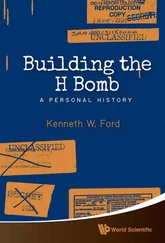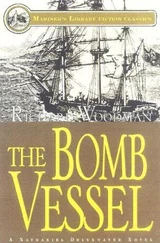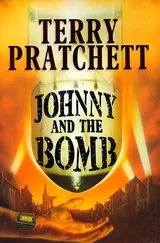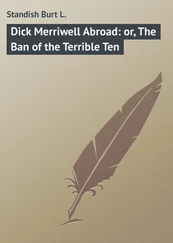What was your parents’ attitude to the war?
Well, my father was against it, not on political grounds as far as I know, but on moral grounds. Early on he registered as a conscientious objector, but his application was rejected. However, because he was in a vital industry, the clothing industry, he was exempted from military service, anyway.
Can you tell me something about the experience of being at St. Dominic’s?
For starters, it was run by Dominican nuns. Three of us went there: Arthur, Margaret and me, while Terry went to a local day-school in Inchicore. I remember our excitement at the prospect of being at a school where you slept in. We thought that was terrific. But when we got there it was very strict and oddly puritanical.
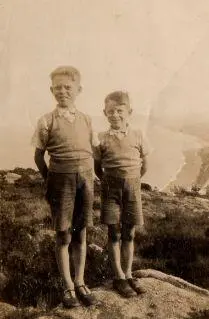
Fig 3: Michael (on the right) with his older brother, Arthur, on Killiney Hill, County Wicklow. Early 1940s. Photograph by Arthur Randle senior. Private Collection.
How so?
Well, I remember one kid who was very young, probably just three or four. One day he got up in the dormitory. His pyjama bottoms fell down, and he was beaten with the thick leather strap that was used for administering punishment. Then I remember other examples of the nuns’ severity. In the school grounds there was an institute for the deaf and dumb, some of whose inmates worked as servants at the school. One day, one of them came in to clean out the fireplace in the classroom, and the nun in charge got upset because the boys smiled and nodded to her. Heaven knows what she thought that they’d done, but she reported the matter to Sister Mary Imelda Joseph, and, my God, there were absolute ructions over it. She beat the boys’ hands with a leather strap. In fact, the only boy amongst us who did not get beaten was my brother, Arthur. He stuck to his guns and said, ‘I don’t see what we’ve done wrong.’ I suppose that Sister Mary Imelda Joseph must have respected that.
Incidentally, we learned quite a few signs from the servants, one of which was, ‘I’m going to sneak on you.’ We thought of them as fellow sufferers!
Did the war impinge much on your life at the college?
Not really, but I do remember very clearly the occasion when the Germans bombed the North Strand district of Dublin, whether by accident or as a warning I don’t know. I was asleep in bed at the time and had a nightmare that bombs were falling from the sky and exploding behind me as I tried to run away. Then I woke up and realised that they were real explosions. One of the nuns dashed in and we recited the prayer we always said last thing at night, ‘Jesus, Mary and Joseph. I give you my heart and my soul. Jesus, Mary and Joseph assist me now and in my last agony. Jesus, Mary and Joseph may I breathe out my soul in peace with you. Amen.’
Something to cheer you up then.
Yes, I suppose so [laughs]. Afterwards, we were all bundled into a sort of basement in the girls’ part of the college, where the resident priest led us in reciting The Rosary.
Did you experience any bullying from other children at the convent, coming as you did from a mixed Anglo-Irish background?
Well, there was certainly quite a bit of hostility towards Britain, but, no, I wouldn’t say that I was bullied. Possibly I was helped in that respect by the fact that my mother was Irish and that the priest who came to examine the pupils’ knowledge of catechism and Catholic teaching was none other than my mother’s cousin, Uncle Tom, from Ballsbridge! However, things in one period did get tense. That was when Churchill demanded the use of the Irish ports, in accordance with a clause in the 1922 Anglo-Irish Agreement guaranteeing the British access to them in an emergency. Such an action would have compromised Irish neutrality and possibly brought the country into the war, so De Valera refused. So, there was a bit of a scare as to whether Churchill’s demand was going to lead to hostilities with Britain. I remember a boy called George Harris and some of his mates sitting in a huddle and saying that if it did come to war that they would kill me and all the other English boys.
You must have felt quite threatened.
Not really. Actually, I think it just made me feel more English!
Any republicans on your mother’s side?
Yes, indeed. A first cousin of my grandfather, Seán (or ‘Johnny’) Tracey, from Ballsbridge, took part in the 1916 uprising and was among those interned for a period in an army camp in North Wales after the uprising was suppressed. One family story was that when the insurgents were defending the General Post Office against the British attempt to recapture it, Johnny swapped positions with another man because one of them, I can’t remember which, was left-handed. The man he swapped places with was killed in the fighting. However, I didn’t discover all that until some years after returning to England. It would have stood me in good stead had I known about it while at school in Cabra.
My mother also recounted to me the story of how her father had hidden some sensitive republican documents at the back of a framed picture in the front room. Soon afterwards the house was raided by the British army, which had been tipped off by one of the neighbours that known rebels had been seen visiting it. My mother told of how she struggled not to look at the picture while the raid was going on. I made a video recording of my mother in 1998 talking about her life, and she gives a vivid account of her experience as a child of 10 of the 1916 uprising, and of afterwards hearing the shots from Kilmainham Gaol as the leaders of the uprising were executed. The man, who’d brought the documents, by the way, was Peadar Doyle. He later became the Lord Mayor of Dublin.
Then there was another republican connection with the family in that my mother’s sister, Peg, was engaged to, and eventually married, a Peter Sorahan, who took part in the guerrilla war during the 1918-1921 period and, afterwards, fought on the Republican side in the tragic civil war that followed it. ‘Uncle Peter’ was eventually taken prisoner during the civil war and served time in Kilmainham Gaol. He and Peg went to live in New York, after his release, though they returned in the 1960s to live with Nan in her home in Inchicore.
I learnt more about all this bit by bit, but certainly knew the essential facts by the time I was myself sentenced to 18 months in prison in 1962. By then the family had moved to a farm in Fletching, a small village near Uckfield, East Sussex. I don’t know what it’s like now, but then it was a very conservative village. One of the adjoining farms was owned by a retired colonel, and you’d see men and women in redcoats riding to hounds. In other words, it was all very English and traditional. Anyway, the colonel’s wife spoke to my mother on one occasion and said, ‘Don’t you feel ashamed that your son is in prison?’ ‘No!’, my mother replied. ‘Where I grew up, we were proud of people who went to prison for their convictions.’
Following the war, Michael, did you return to England immediately?
No, not immediately. My father’s great ambition at this time was to have a farm—he was already a keen allotment holder—, and we spent some time looking at farms in Ireland. There was talk then of the whole family moving there. But that didn’t work out. We returned to England in August 1945, just a couple of days before VJ Day. I remember we went up to London and watched the King and Queen come out onto the balcony of Buckingham Palace and wave.
Did you move back to your old house?
Читать дальше


